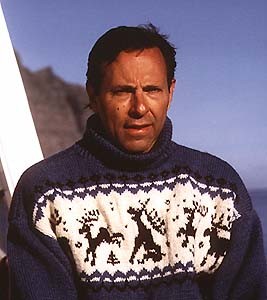Richard Ellis
Heidel, William Arthur
William Arthur Heidel (1868-1941) was an American scholar, who denied the reality of Atlantis and wrote a critical paper[374] on the subject (republished July 2013(a)). He claims that an expeditionary naval force sent by Darius in 515 BC under Scylax of Caryanda to explore the Indus River, which eventually encountered waters too shallow for his ships, was the inspiration behind Plato’s tale of unnavigable seas. Heidel further claims that Plato’s battle between Atlantis and Athens is a distortion of this war of invasion between the Persians and the Indians.
This pathetic attempt by Heidel to find an alternative historical explanation collapses under the most cursory scrutiny. Darius’ naval force was small and only charged with exploring the region in preparation for a full-scale invasion, which took place successfully a few years later. There is no record of any military engagement. However, it should be noted that Heidel’s attempt to find real historical events behind Plato’s narrative would appear to reveal a subconscious acceptance that there may be a core of truth in the Atlantis story. Richard Ellis another Atlantis sceptic quotes Heidel in his book[288] as saying “Certainly it is more reasonable to look for the answer in Greek history and geography than in the findings of modern geology.” Again we have a tacit admission that there may be an historical foundation underpinning Plato’s tale.
*(a) https://www.jstor.org/stable/20022944?seq=1#page_scan_tab_contents*
Ellis, Richard
Richard Ellis is the author of a number of books on the oceans as well as being a distinguished marine artist. In his dissertation [288]on Atlantis he consigns Plato’s story to the realms of fantasy and he discusses the efforts of both serious investigators such as James Mavor and Jacques Cousteau and also the ramblings of spiritualists like Rudolf Steiner. He concludes that one group is simply misled while the other is misleading.
[288]on Atlantis he consigns Plato’s story to the realms of fantasy and he discusses the efforts of both serious investigators such as James Mavor and Jacques Cousteau and also the ramblings of spiritualists like Rudolf Steiner. He concludes that one group is simply misled while the other is misleading.
The greater part of the book is devoted to a discussion of the possible link between the eruption of Santorini in the second millennium BC and Atlantis. This, presumably, is due to the prominence that this particular theory had achieved in the popular media at that time..
Understandably, while sceptics have given the book an enthusiastic welcome, others have taken a more critical stance.
*Some years later, Ellis published Encyclopedia of the Sea, a comprehensive, but concise review of all things maritime, generously illustrated by the author.*
